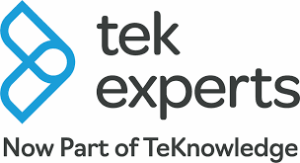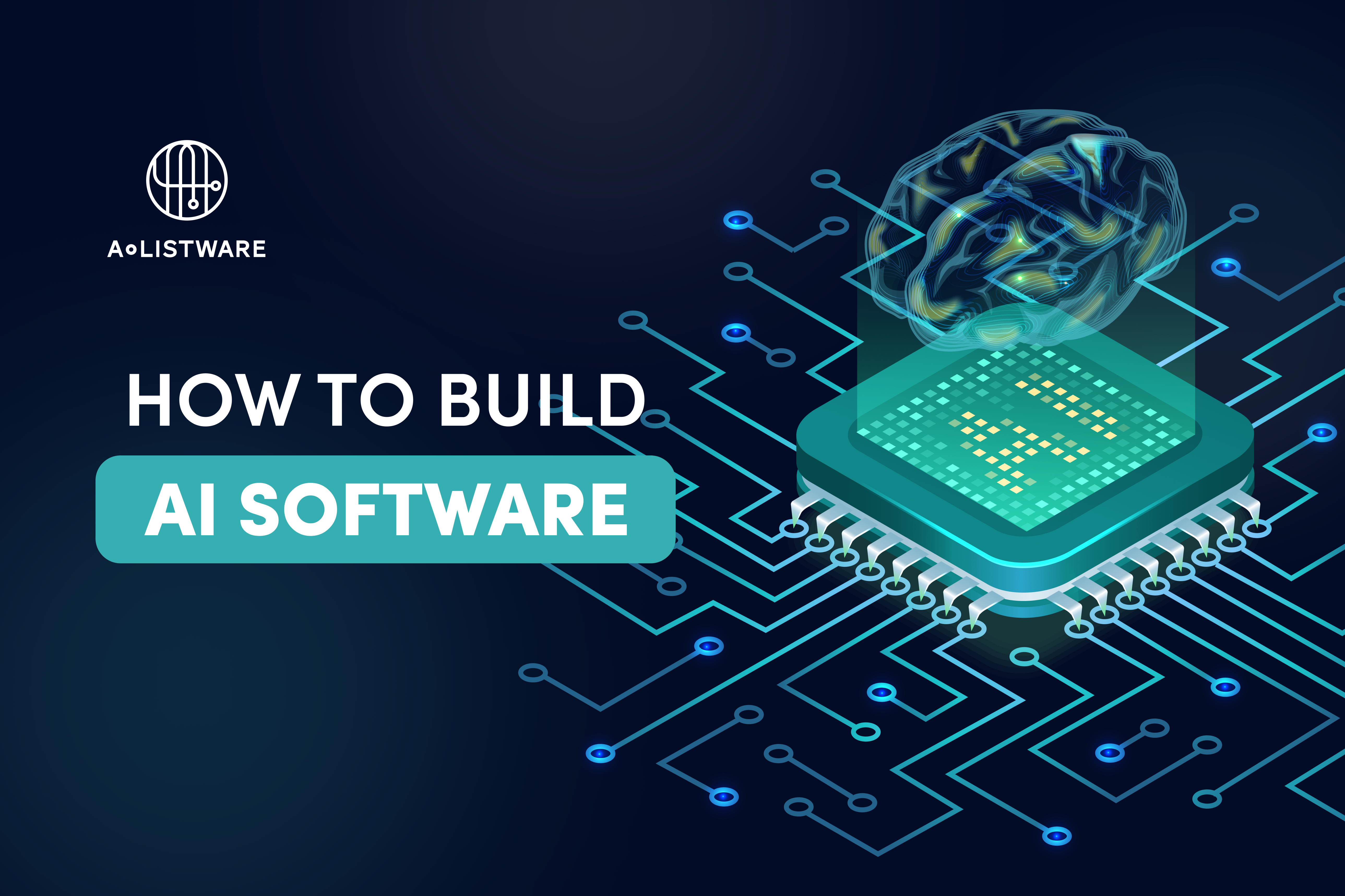In today’s digital landscape, staying ahead of cyber threats is essential. Security patching is a critical part of IT defense, ensuring systems remain protected against vulnerabilities. This article highlights some of the top security patching companies in the USA that help businesses maintain secure and resilient infrastructures.

1. A-listware
We are a distributed engineering team that provides security patching as part of our cybersecurity and managed IT practice in the United States. By pairing flexible staffing with domain know-how, we keep client systems current with the latest fixes while maintaining compliance. Our developers and security specialists build patch management into wider application and infrastructure support so updates ship on time with minimal disruption.
Working with finance, healthcare, retail, and other regulated sectors, we take an objective approach to risk. We assess each environment, map the patch cycle, test updates, and automate deployment where practical. This lets us cut exposure windows without trading off stability.
Key Highlights:
- Distributed US-facing engineering coverage
- Risk-based process that prioritizes critical patches
- Starter kits and blueprints that speed up scheduling and rollback
- Experience across cloud and on-premise systems
- Support for heavily regulated industries
Services:
- Security patch management for operating systems, middleware, and apps
- Continuous vulnerability assessment and remediation
- Managed IT and help desk coordination for patch rollouts
- QA testing of patches before production release
- Consulting on patch automation and policy creation
Contact Information:
- Website: a-listware.com
- Phone: +1 (888) 337 93 73
- Email: info@a-listware.com
- Address: North Bergen, NJ 07047, USA
- LinkedIn: www.linkedin.com/company/a-listware/mycompany
- Facebook: www.facebook.com/alistware

2. Palo Alto Networks
They deliver a broad security platform that weaves patch management into network, cloud, and endpoint protection. Their next generation firewalls and cloud delivered services use AI insights to flag missing fixes and push updates with minimal downtime. Unit 42 experts translate threat intelligence into practical remediation steps, helping customers close gaps before they are exploited.
Their cloud security tools tie vulnerability data to policy based patch workflows, while Strata Cloud Manager gives teams a single place to track status across sites. By combining assessment, automation, and incident response, they support regulated sectors that need consistent and well documented patch cycles.
Key Highlights:
- Wide coverage across network, cloud, and endpoint layers
- AI driven prioritization for critical patches
- Central control through Pan OS and Strata Cloud Manager
- Unit 42 services for rapid remediation support
- Alignment with zero trust and compliance goals
Services:
- Patch management for firewalls, cloud workloads, and endpoints
- Vulnerability assessment and risk reporting
- Managed detection and response with patch guidance
- Incident response and digital forensics
- Advisory services for zero trust and security program design
Contact Information:
- Website: www.paloaltonetworks.com
- E-mail: info@paloaltonetworks.com
- Facebook: www.facebook.com/PaloAltoNetworks
- Twitter: x.com/PaloAltoNtwks
- LinkedIn: www.linkedin.com/company/palo-alto-networks
- Address: 3000 Tannery Way Santa Clara, CA 95054
- Phone: 1.888.704.5196

3. Rapid7
Rapid7 focus on exposure management that links vulnerability detection with clear patch actions. InsightVM scans assets, pinpoints missing fixes, and feeds tickets to IT tools so teams can act fast. Their Managed Vulnerability Management service takes over scheduling and deployment for customers that need extra hands on deck.
Threat intelligence from Rapid7 Labs and a next gen SIEM help security staff understand which patches matter most in current attack campaigns. Continuous red teaming and pen testing validate that applied patches hold up under real world tactics, keeping programs honest and risk focused.
Key Highlights:
- Integrated platform that pairs detection with patch tasks
- 24×7 managed services for monitoring and remediation
- Threat intel drives patch priority decisions
- Seamless handoff to IT ticketing and workflow tools
- Validation through continuous red teaming and pen tests
Services:
- Vulnerability and patch management via InsightVM
- Managed detection and response around the clock
- Managed Vulnerability Management for full cycle patching
- Continuous red teaming and penetration testing
- Incident response assistance during active breaches
Contact Information:
- Website: www.rapid7.com
- E-mail: info@rapid7.com
- Facebook: www.facebook.com/rapid7
- Twitter: x.com/Rapid7
- LinkedIn: www.linkedin.com/company/rapid7
- Instagram: www.instagram.com/rapid7
- Address: Global Headquarters 120 Causeway Street Suite 400 Boston, MA 02114
- Phone: +1-617-247-1717

4. Qualys
Qualys provide a unified cloud platform where asset inventory, vulnerability scanning, and patch management share one agent and one dashboard. Their Patch Management app pushes fixes to operating systems, third party software, and containers from the same console that reports risk.
Risk based prioritization draws on TruRisk scoring so teams tackle the most pressing issues first. Real time dashboards track patch status for compliance audits, and the platform scales from small environments to global fleets without extra infrastructure.
Key Highlights:
- Single agent and console for scanning and patching
- Risk based patch priority with TruRisk scoring
- Coverage for endpoints, servers, containers, and cloud workloads
- Dashboards that satisfy audit and compliance needs
- Cloud native design that scales on demand
Services:
- Patch management across operating systems and applications
- Vulnerability Management Detection and Response
- Asset inventory and attack surface management
- Policy compliance and file integrity monitoring
- Endpoint detection and cloud workload protection
Contact Information:
- Website: www.qualys.com
- E-mail: info@qualys.com
- Facebook: www.facebook.com/qualys
- Twitter: x.com/qualys
- LinkedIn: www.linkedin.com/company/qualys
- Instagram: www.instagram.com/qualyscloud
- Address: Qualys, Inc. 919 E Hillsdale Blvd, 4th Floor Foster City, CA 94404 USA
- Phone: +1 650 801 6100

5. Automox
They use a cloud agent to keep Windows, macOS, and Linux devices patched no matter where they sit. Policy driven rules let teams schedule updates, enforce settings, and roll out fixes without extra hardware or VPN links. Their AI tools and Worklets catalog help admins script custom tasks so every device follows the same baseline.
Because visibility lives in one dashboard, they give IT staff a clear view of patch status and configuration drift. Built in reporting shows that operating systems and third party apps stay current, while remote control lets technicians troubleshoot hard cases on the spot.
Key Highlights:
- Cloud first design with one lightweight agent
- Cross platform patching and configuration from one console
- AI support for custom scripts and policies
- Real time reporting and PDF exports
- Remote control for quick fixes
Services:
- Automated patch deployment for OS and third party software
- Device configuration enforcement and drift correction
- Vulnerability sync and remediation actions
- Remote troubleshooting for Windows and macOS
- Software rollout and update scheduling
Contact Information:
- Website: www.automox.com
- E-mail: info@automox.com
- Facebook: www.facebook.com/automox
- Twitter: x.com/automox
- LinkedIn: www.linkedin.com/company/automox
- Instagram: www.instagram.com/patchautomox
- Address: Automox Inc. 1606 Headway Cir #9043 Austin, TX 78754 USA
- Phone: +1 (720) 334-8473

6. NinjaOne
They deliver endpoint management that joins patching, monitoring, and remote support in a single view. From the same console, teams push updates, track compliance, and spin up remote sessions when devices need hands on help. Tight links with service desk and security tools pass alerts and tickets without extra steps.
For groups that handle many sites, the platform scales by using one policy set across branches while still letting admins fine tune rules per device. Automated reports document that patches land on time and that security controls stay active across the fleet.
Key Highlights:
- Unified dashboard for patching and monitoring
- Integrations with service desk and threat tools
- Remote access built into every asset record
- Policy based control for large or small sites
- Customizable reports for audits and reviews
Services:
- Operating system and third party patch rollout
- Automated compliance and vulnerability reporting
- Remote monitoring and management of endpoints
- Software deployment and asset tracking
- Integration support with PSA and ITSM platforms
Contact Information:
- Website: www.ninjaone.com
- E-mail: sales@ninjaone.com
- Facebook: www.facebook.com/NinjaOne
- Twitter: x.com/ninjaone
- LinkedIn: www.linkedin.com/company/ninjaone
- Instagram: www.instagram.com/ninjaone
- Address: 301 Congress Ave, 4th Floor Austin, TX 78701
- Phone: +1 888 542-8339

7. SolarWinds
They bring patch management into a wider observability and service management suite built for hybrid IT. Admins schedule updates, track inventory, and trigger alerts from one interface that also covers network, database, and cloud resources. Tight links to the service desk turn patch events into tickets so changes follow a clear workflow.
Dashboards combine monitoring data with patch status, helping teams spot gaps before they cause incidents. Automation rules push routine fixes while keeping records for audits, and built in guidance helps staff respond fast if a patch introduces issues.
Key Highlights:
- Patch tasks integrated with monitoring and ITSM
- Support for on premises and cloud hosts
- Dashboard views of compliance and performance
- Change tracking tied to incident tickets
- Automation to reduce manual steps
Services:
- Patch management for servers, workstations, and apps
- Monitoring and alerting across hybrid environments
- Service desk workflow for patch related changes
- Asset discovery and configuration database
- Incident response and technical support
Contact Information:
- Website: www.solarwinds.com
- E-mail: sales@solarwinds.com
- Facebook: www.facebook.com/SolarWinds
- Twitter: x.com/solarwinds
- LinkedIn: www.linkedin.com/company/solarwinds
- Instagram: www.instagram.com/solarwindsinc
- Address: 7171 Southwest Parkway Bldg 400 Austin, Texas 78735
- Phone: +1-866-530-8100

8. Ivanti
Ivanti Neurons for Patch Management supports risk-based patching across multiple operating systems and third-party applications. Their approach prioritizes remediation based on real-world threat intelligence rather than static scoring systems. This allows teams to act on active exploits and reduce time-to-patch on high-risk vulnerabilities.
Their system automates patch assessment and deployment using ring deployment models and custom patching rules. Devices missed during initial deployment are patched automatically when they reconnect. The platform supports full compliance reporting and asset discovery, enabling accurate tracking of patch status and SLA performance.
Key Highlights:
- Risk-based prioritization using threat context
- Automated patching with fallback deployment logic
- Asset discovery and exposure-based compliance reporting
- SLA tracking for patch timelines
- Supports Windows, Linux, macOS, and more
Services:
- OS and third-party application patching
- Vulnerability discovery and risk-based remediation
- Patch reliability tracking using deployment data
- Exposure-based compliance and SLA reporting
- Integration with endpoint and asset management tools
Contact Information:
- Website: www.ivanti.com
- Facebook: www.facebook.com/GoIvanti
- Twitter: x.com/GoIvanti
- LinkedIn: www.linkedin.com/company/ivanti
- Instagram: www.instagram.com/goivanti
- Address: 10377 South Jordan Gateway Suite 110 South Jordan, Utah 84095
- Phone: +1-888-253-6201

9. Foresite
Foresite delivers managed security solutions that include patch management for hybrid and multi-cloud environments. Their service combines automated patching with vulnerability assessments to maintain system hardening across different platforms. This helps organizations maintain compliance and lower exposure to known exploits.
Their patching approach is part of a broader security operations service that includes threat detection, governance, and endpoint protection. Foresite works with enterprises and managed service providers, integrating patching workflows with broader IT and security operations.
Key Highlights:
- Patch management as part of broader security services
- Designed for hybrid and multi-cloud environments
- Combines vulnerability assessment with patching
- Supports endpoint, cloud, and infrastructure coverage
- Aligns with compliance and security frameworks
Services:
- Patch deployment across enterprise infrastructure
- Vulnerability scanning and assessment
- Managed security operations with patch integration
- Governance and compliance reporting
- Endpoint protection and threat detection integration
Contact Information:
- Website: foresite.com
- Twitter: x.com/Foresite_Cyber
- LinkedIn: www.linkedin.com/company/foresite-managed-services
- Address: 7311 W 132nd Street, Suite 305 Overland Park, KS 66213
- Phone: +1 (800) 940-4699

10. SecPod
They automate every stage of patch management through Saner CVEM. The platform scans devices, ranks missing fixes by severity, and tests updates in a controlled space before rollout. Their cloud console lets teams deploy patches across Windows, macOS, Linux, and hundreds of third party apps from a single view, supporting perimeter less networks and remote users.
Rapid content delivery means new vendor patches appear in the console within 24 hours, already validated for safe use. Admins can set rules for automatic rollout, hold back less critical fixes, or roll back to a stable version if problems arise. Compliance reports and audit logs give clear proof of patch status across the fleet.
Key Highlights:
- Cloud console with global coverage
- Support for Windows, macOS, Linux, and 550 plus apps
- Pre tested patches available within one day
- Rollback to last known good version
- Continuous scanning with severity based prioritization
Services:
- End to end automated patch deployment
- Vulnerability and exposure scanning
- Compliance reporting and audit logging
- Workflow rules for testing and rollout
- Firmware and configuration patch support
Contact Information:
- Website: www.secpod.com
- E-mail: info@secpod.com
- Facebook: www.facebook.com/secpod
- Twitter: x.com/secpod
- LinkedIn: www.linkedin.com/company/secpod-technologies
- Address: 303 Twin Dolphin Drive, 6th Floor Redwood City, California, 94065, United States of America
- Phone: +16506225044
11. ServiceNow
They embed patch workflows inside the broader Security Operations suite on the ServiceNow AI Platform. Vulnerability Response ties scan results to change tickets, letting teams schedule and track fixes through standard approval paths. Integration with the CMDB links each patch to the assets it affects, creating a clear audit trail.
Analytics dashboards show open vulnerabilities by business impact so staff focus on the most important updates first. Automation features route tasks, gather evidence, and close tickets once devices report compliance. This approach works well for organizations that want patching to follow the same governance model as other IT and security processes.
Key Highlights:
- Patch process integrated with incident, change, and asset data
- Risk based prioritization tied to business impact
- Dashboards with real time metrics for SLAs
- Automation of task routing and evidence collection
- Scalable packages that grow with program needs
Services:
- Vulnerability Response and patch workflow automation
- Configuration compliance monitoring
- Threat intelligence enrichment for patch priority
- Performance analytics for security operations
- Integration hub connectors for external tools
Contact Information:
- Website: www.servicenow.com
- Facebook: www.facebook.com/servicenow
- Twitter: x.com/servicenow
- LinkedIn: www.linkedin.com/company/servicenow
- Instagram: www.instagram.com/servicenow
- Address: 2225 Lawson Lane Santa Clara, CA 95054

12. ManageEngine
They provide Patch Manager Plus, an automated module of Endpoint Central that covers Windows, macOS, Linux, and more than 850 third party applications. The system discovers missing fixes, tests them in pilot groups, and then deploys to production on a flexible schedule. Policies handle reboot timing and user notification to reduce disruption.
Admins can patch devices across LAN, WAN, VPN free networks, or remote workers through a single interface. Rollback and decline options keep control over legacy software, while real time reports show compliance status for audits. The platform also supports feature updates and service packs to maintain OS currency.
Key Highlights:
- Cross platform coverage plus 850 third party apps
- Test and approve flow to catch faulty updates
- Deployment across LAN, WAN, DMZ, and roaming devices
- One click rollback or decline for specific patches
- Detailed compliance and status reports
Services:
- Automated scanning, testing, and deployment
- Patch management for servers, workstations, and laptops
- Service pack and feature update rollout
- Vulnerability assessment and remediation tracking
- Integration with help desk and asset tools
Contact Information:
- Website: www.manageengine.com
- E-mail: tech-expert@manageengine.com
- Facebook: www.facebook.com/ManageEngine
- Twitter: x.com/manageengine
- LinkedIn: www.linkedin.com/company/manageengine
- Instagram: www.instagram.com/manageengine
- Address: 4141 Hacienda Drive Pleasanton CA 94588 USA
- Phone: +1 888 791 1189

13. ITarian
ITarian provides automated patch management as part of their broader remote monitoring and IT service platform. Their system supports patching for Windows and Linux operating systems along with over 400 third-party applications. Administrators can identify missing patches, define deployment rules, and schedule updates based on severity, vendor, or type. Patches can be tested before deployment to reduce the risk of disruption.
The centralized dashboard shows real-time patch status and helps track update history across devices. Endpoints can be grouped and tagged for targeted rollouts, making it easier to align patching tasks with business priorities. ITarian also includes tools for remote monitoring, endpoint security, and helpdesk integration.
Key Highlights:
- Cross-platform patch support for OS and third-party apps
- Real-time patch status monitoring from a single dashboard
- Custom policies for scheduling and deployment
- Patch testing before approval
- Endpoint grouping and tagging for targeted rollouts
Services:
- Patch scanning, testing, and deployment
- Centralized patch status reporting
- Policy-driven patch management
- Integration with remote monitoring and service desk tools
- Support for 400+ third-party applications
Contact Information:
- Website: www.itarian.com
- E-mail: success@itarian.com
- Facebook: www.facebook.com/goITarian#
- LinkedIn: www.linkedin.com/company/itarian
- Address: 200 Broadacres Drive, Bloomfield, NJ 07003
- Phone: +1 (844) 220-2223

14. SysAid
SysAid’s platform focuses on IT service management and includes automation features for tasks like patching through AI-powered workflows. The system tracks IT assets, maps relationships between devices in the CMDB, and supports automated handling of routine updates. Their AI agents assist with ticket categorization and incident resolution, reducing manual effort.
While not a dedicated patch management solution, SysAid integrates patching with asset intelligence and service workflows. The platform gives IT teams the ability to detect, log, and act on system-level issues while keeping records for compliance and reporting. Their focus is on improving service delivery and automating IT tasks across the lifecycle.
Key Highlights:
- AI assistance for incident categorization and response
- Integration of asset and configuration data
- Customizable workflows for IT tasks
- Visibility into asset health and updates
- Centralized ticket and task tracking
Services:
- Automated IT workflow and ticket handling
- Asset tracking and CMDB management
- AI-supported response recommendations
- Incident resolution and logging
- Workflow automation for service processes
Contact Information:
- Website: www.sysaid.com
- Facebook: www.facebook.com/SysAidIT
- Twitter: x.com/sysaid
- LinkedIn: www.linkedin.com/company/sysaid-technologies-ltd
- Address: M6K 1X9 Toronto, Canada 80 Atlantic Avenue, 5th floor
- Phone: +44 (208) 157-2277

15. Action1
Action1 offers cloud-based patch management with support for Windows, macOS, and a wide range of third-party applications. Their platform automates patch detection and deployment without needing VPN or domain access, making it suitable for remote or distributed environments. The tool supports patching of offline devices once they reconnect, ensuring continuous coverage.
Real-time dashboards provide visibility into patch status and compliance. Action1 also includes vulnerability scanning, software deployment, and risk management features. Peer-to-peer update distribution helps conserve bandwidth during large rollouts. The platform supports compliance frameworks such as PCI, HIPAA, and SOC 2, helping IT teams maintain control over endpoint security.
Key Highlights:
- Cross-platform patch support without VPN
- Real-time vulnerability detection and remediation
- Peer-to-peer update distribution
- Cloud-native architecture with global reach
- Compliance tracking for major standards
Services:
- OS and third-party patching automation
- Vulnerability scanning and risk management
- Software deployment
- Remote patching for disconnected endpoints
- Compliance reporting and audit support
Contact Information:
- Website: www.action1.com
- Facebook: www.facebook.com/action1corp
- Twitter: x.com/Action1corp
- LinkedIn: www.linkedin.com/company/action1corp
- Address: 2929 Allen Parkway Suite 200, Houston, TX 77019
- Phone: +1-346-444-8530

16. Patch My PC
Patch My PC provides automated patch management solutions that integrate directly with Microsoft Intune, ConfigMgr (SCCM), and WSUS. Their platform is designed to simplify the update process for third-party applications, reducing the need for manual packaging and deployment. This helps IT teams maintain consistent patch compliance while minimizing downtime and security risks.
They also offer tools for application lifecycle management and endpoint reporting. Their system generates real-time insights into patch status and vulnerabilities across devices. By centralizing software updates and reporting in a single console, organizations can automate routine tasks and focus on managing exceptions or policy enforcement.
Key Highlights:
- Native integration with Intune, SCCM, and WSUS
- Support for a wide range of third-party applications
- Real-time patch compliance and reporting
- Automated app lifecycle management
- No need for manual packaging or scripting
Services:
- Automated third-party patch deployment
- Intune and ConfigMgr application management
- Real-time endpoint analytics and compliance dashboards
- Support for custom application updates
- Centralized SaaS management portal for MSPs and IT teams
Contact Information:
- Website: patchmypc.com
- Facebook: www.facebook.com/PatchMyPC
- Twitter: x.com/PatchMyPC
- LinkedIn: www.linkedin.com/company/patchmypc
- Phone: 1 800 250 2334
Conclusion
Security patching remains a core part of maintaining safe and stable IT environments. As threats evolve and systems grow more complex, automated and reliable patch management tools are essential. The companies covered in this article offer a range of solutions tailored to different needs, from small organizations with basic requirements to enterprises managing large, distributed infrastructures.
Each provider takes a slightly different approach, but all aim to reduce risk, streamline processes, and improve visibility into patch compliance. Whether integrated with broader IT service platforms or focused specifically on patching and vulnerability management, these solutions help organizations stay current and better prepared for emerging threats.



































































